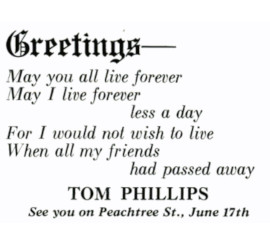Eubie Blake? Erma Bombeck? Mickey Mantle? Adolph Zukor? Billy Noonan? Robert Henley? Anonymous?
Question for Quote Investigator: Looking back on one’s younger years it is natural to experience some regrets. The following comment has a humorous edge:
If I’d known I was going to live this long, I would have taken better care of myself.
This saying has been attributed to U.S composer Eubie Blake, baseball player Mickey Mantle, Hollywood producer Adolph Zukor and others. Would you please explore this topic?
Reply from Quote Investigator: The earliest close match located by QI appeared in a Minneapolis, Minnesota newspaper in September 1951. Seventy-year-old editorial columnist Billy Noonan attended a dinner with fellow journalists who praised him. Boldface added to excerpts by QI:1
At the dinner many nice things were said about Billy and the hope was expressed that he would live forever.
Noonan responded: “If I had known I was going to live so long, I’d have taken better care of myself.”
There is some evidence that others such as Eubie Blake and Adolph Zukor employed this saying in later years as indicated further below.
Here are additional selected citations in chronological order.
Continue reading “Quote Origin: If I Had Known I Was Going To Live So Long, I’d Have Taken Better Care of Myself”




